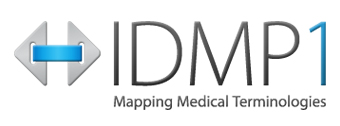Global Ingredients Archiving System (GINAS)
What is GINAS in relation to ISO 11238
GINAS and ISO 11238 specifically addresses the identification and exchange of regulated information on substances. GINAS supports all substance types described in the 11238 standard and provide multiple language capability for the naming of substances and controlled terminology used within the IDMP.
Background of GINAS
Globalisation presents tremendous challenges and opportunities for national regulatory agencies, the pharmaceutical industry, and global health as a whole. Emerging diseases and the health impacts of catastrophic events respect no national boundaries, nor does the increasing volume of substandard, contaminated, and counterfeit products that overburdens national regulators. Ingredients for pharmaceutical products are typically sourced on a global basis and it is very rare that all ingredients for a single product are produced within one jurisdiction. To regulate the global supply chain efficiently and to better respond to and prepare for catastrophic events it is essential to have a global information system for pharmaceutical ingredients.
ISO 11238 specifically addresses the identification and exchange of regulated information on substances. Working closely with that standard’s authors and regulatory authorities from various countries, NCATS is developing an information system to register and store substance-related information and provide identifiers. This will ensure a robust substance registration system that supports the additional needs of national and regional authorities and is consistent with the ISO 11238 standard. The system will support all substance types described in the 11238 standard and provide multiple language capability for the naming of substances and controlled terminology used within the system.
GINAS Project Description
The Global Ingredient Archival System (GINAS) represents a major opportunity for regulators worldwide to tackle the challenges of sharing ingredient information. This tool makes it possible to create a global standard for defining substances and a common identifier to identify ingredients in medicinal products. This will enable the global health community to share and use information to significantly improve health care delivery, the proper use of medications, and the management of risks involved in their use.
The project’s main goal is to provide a consistent definition of substances globally, and a common identifier for all the substances used in marketed medicinal products as well as active substances under clinical investigation. It is envisioned that a consortium of regulators from different national and international agencies would operate and maintain the platform in a secure and trusted manner. This centralized database will result in higher quality data while still respecting confidentiality requirements.
The software tools used in this project are developed, maintained, and distributed to project members and other interested parties by the National Center for Advancing Translational Sciences (NCATS) at the National Institutes of Health (NIH). As well as containing definitional information and identifiers, the system is able to store a wide variety of structured information on the identification, analysis, use, manufacture, pharmacology, and toxicology of medical product substances.
Goal of the Program
GINAS is a solution to the costly, duplicative, and piecemeal approaches currently being used. It will enable regulators to more easily monitor the global marketplace. The system could play a vital role in facilitating a global approach to pharmacovigilance; identifying and tracking substandard products and ingredients; alleviating drug shortages; enhancing clinical development; and coordinating and streamlining regulatory actions worldwide. The project will benefit industry by offering a “one-stop shop” to deposit substance-related regulatory information. It will help in developing specifications of substances and products in a more consistent manner, and in coordinating facility inspections. Finally, the project should dramatically reduce the time and costs of information-gathering for both companies and regulators.
NCATS intends this software product to be a freely distributable, maximally self-contained system to register substances and related manufacturing, analytical, and relevant biological information on substances that are of interest to health product regulators, product sponsors, and health researchers. Consistency will be achieved through a common data model and synchronization with a central database.
Since February 2013, Canadian, Dutch, German, Swiss, and U.S. regulators have been working with NCATS to create this system. Health Canada is providing an environment for collaborative development. This environment supports the initial curation and mapping of content used for global substance identification.
The project group welcomes participation and sponsorship by regulatory agencies and other public health organizations throughout the world. It aims to be a global resource that will benefit public health by facilitating the transfer of regulatory information and providing industry and other interested stakeholders with a uniform process for depositing substance-related information.
Browse substances
Related Entries
